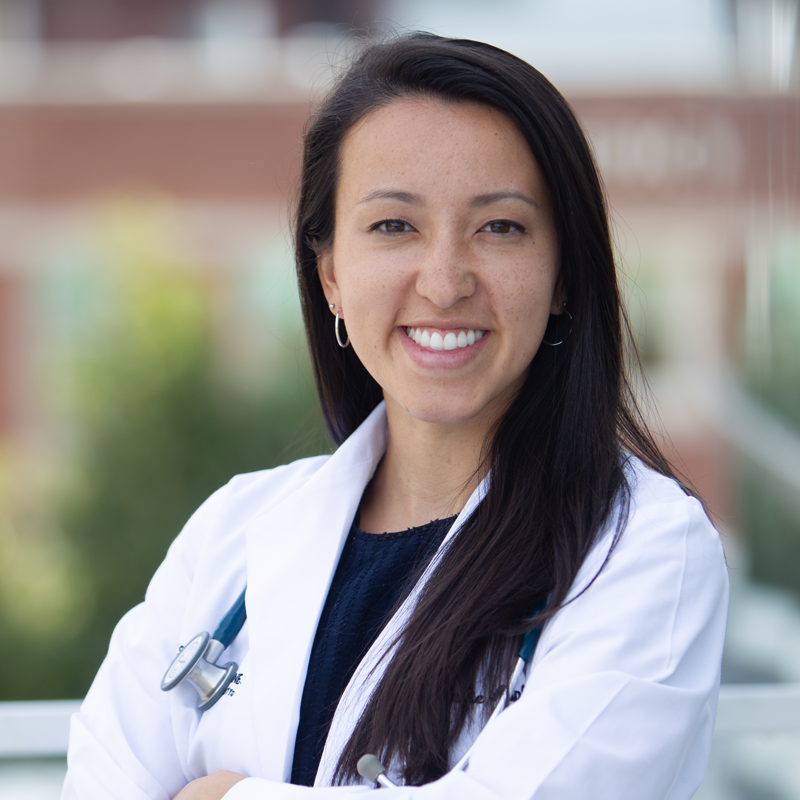What does it take to make a change? Med students publish a toolkit to end racialized medicine
by Emma Mattson
This month five Vanderbilt M2s published an online toolkit sharing how med students led the charge for a VUMC-wide elimination of race-adjustment in a key measure of renal function. The resource, entitled “CAR Toolkit to End Racialized Medicine: eGFR Edition,” breaks their process down into manageable steps so that med students at other institutions can work towards similar change.
What’s the problem with eGFR?
Physicians in the U.S. have long adjusted for race when calculating a patient’s estimated glomerular filtration rate (eGFR), which is a measure of renal function. However, studies have shown that adjustment for race does not actually improve the accuracy of eGFR. In fact, the adjustment is based on supposed differences in muscle mass between Black and non-Black individuals— a myth that traces back to slavery in the U.S.

As individuals encountering eGFR for the first time, med students, like M4 Annie Apple, often bring fresh perspective and a ready critique to such measures.
“You’re learning everything for the first time, so if there are things that don’t make sense, you have the power to ask questions about that,” Apple said. “Taking that mindset to not just eGFR, but really anything that we learn in med school and beyond, [you] just feel empowered to question those things.”
But changing a longstanding medical practice would take more than inquisitiveness. It would take a purposeful and dedicated coalition.
Luckily, such a coalition had just been established in Nashville.
What’s Campaign Against Racism?

In early 2018, Dr. Sophia Kostelanetz, MD, MPH (then a resident at Vanderbilt University Medical Center) learned about a movement called Campaign Against Racism (CAR) at a conference and started gathering interest to start a chapter back in Nashville. By May, she had gathered a dedicated group of medical students, residents, PhD candidates, and faculty.

The new chapter included med students Annie Apple, Tita Gonzalez Peña, and Peety Kaur, as well as key faculty like Drs. Khaled Abdel-kader, Beatrice Concepcion, Ndang Ngong Azang-njaah, Alison Lutz, Erin Graves, and Joseph Starnes.
The chapter quickly decided to focus its efforts on eliminating race-based adjustment in eGFR.
Eliminating this practice would take two years and countless hours of work from med students, residents, and faculty alike, but the group would ultimately be successful. In July 2020, VUMC officially halted its use of race-based adjustment in eGFR measurement.
As they assembled a team, sought advice, engaged with stakeholders, and challenged entrenched misbeliefs about race, the med student leaders learned a lot about making institutional changes, and they were ready to pass those lessons on to others.
Why build a toolkit?
As the word spread about CAR’s success, the group started to get emails from med students at other institutions who wanted to make similar changes. Soon, however, they realized they needed a more efficient way to share the information.
“At first, we were just trying to respond to emails and connect with them when we could,” Apple said. “But that was another inspiration for the toolkit: having a centralized resource that we could easily distribute to people.”

bottom l-r: LeAnn Lam, Ekiomoado Olumese, Sarah Reed
Five M2’s— Helen Gambrah, Whitney George, LeAnn Lam, Ekiomoado Olumese, and Sarah Reed —took on the task of writing a toolkit that would condense their experience into meaningful steps that others could follow.
Per George, the process reflected community organizing principles— like transparency —that had driven CAR from the beginning.
“The way we pass down the information within the organization in order to pass it around to anyone who wants to read it, to make it just public knowledge— I think that’s really important,” George said.
For Reed, the toolkit offered proof of the power of dedicated med students.
“It’s also really helpful for other community members or students at other schools or really any other institution that’s trying to take a step like this,” Reed said. “That can feel like just this huge mountain climb. Practically speaking, if we want to do this and say we’re committed to it, how do you go from a huge mountain to a bunch of steps to actually getting there?”
Who’s the message for?
Though it’s accessible for a general audience, the toolkit’s primary audience is med students— at Vanderbilt and elsewhere.
“We are going to be the next generation of physicians and we want to continue to empower our peers to also speak up and make these changes,” Lam said.
As for the med students in CAR, they’re looking ahead to what their next initiative might look like.
“There are a lot of practices in medicine that we could be critical about and we may want to look into,” Gambrah said. “Knowing how supportive and receptive Vanderbilt can be, [we know] that any of those could be a possibility within our institution.”
No matter their next step, the group is committed to holding fast to critical curiosity and the role of med students as changemakers.
“Oftentimes, we feel like we’re not able to make change against an institution where so many things are done because that’s the way they’ve always been done,” Lam said. “I hope [the toolkit] inspires and motivates other people to take action.”
